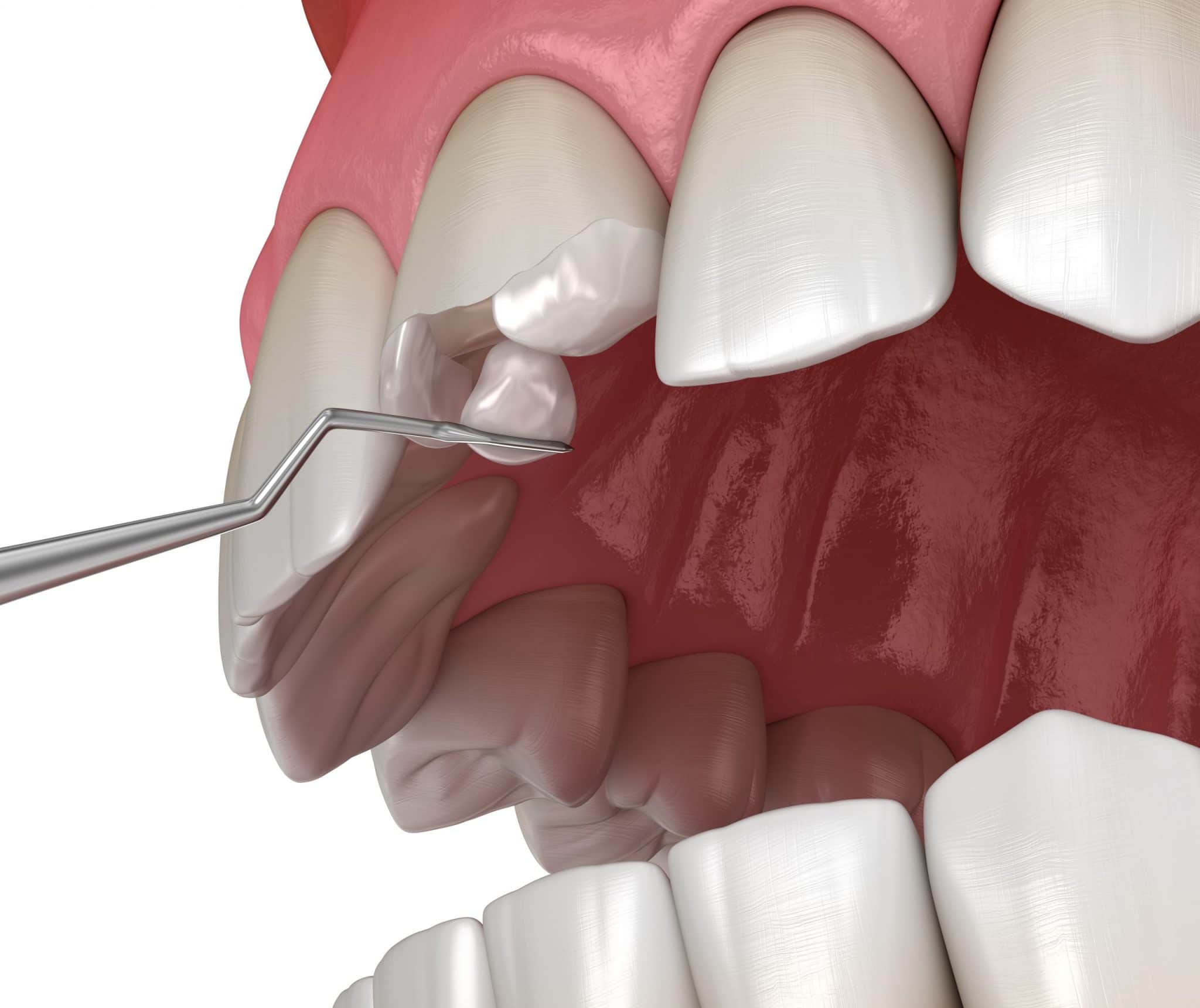Restorative Dentistry
Restorative dentistry is crucial for repairing and preserving the function and aesthetics of teeth damaged due to decay, trauma, or wear. By restoring teeth with treatments like fillings, crowns, bridges, and dental implants, restorative dentistry improves chewing ability and speech and enhances smile aesthetics. This branch of dentistry aims to restore oral health, prevent further deterioration, and ultimately enhance patients’ quality of life by restoring their ability to eat, speak, and smile confidently.

Common Issues Restorative Dentistry Can Effectively Treat
- One of the primary uses of restorative dentistry is treating tooth decay (cavities). Dental filling is a procedure performed to remove decayed portions of teeth and restore them with materials like amalgam, composite resin, or ceramics. This prevents further decay and restores the tooth's strength and function.
- Restorative dentistry offers solutions for replacing missing teeth, which can affect chewing ability, speech, and overall facial aesthetics. Dental implants, bridges, and dentures are standard options to fill gaps and restore a complete smile.
- Teeth that are cracked, fractured, or otherwise damaged due to trauma or wear can be restored with dental crowns or bonding. Crowns cover and protect the damaged tooth while bonding repairs minor imperfections and strengthens the tooth structure.
- Restorative dentistry can help improve bite alignment and correct dental misalignments that affect chewing and oral function. Orthodontic treatments like braces or clear aligners are sometimes included in restorative plans to achieve proper alignment.
- The cosmetic aspects of restorative dentistry focus on enhancing the appearance of the teeth and smile. Procedures such as teeth whitening, veneers, and dental bonding can improve tooth color, shape, and alignment, enhancing overall facial aesthetics and boosting self-confidence.
- Restorative treatments repair existing dental problems and prevent further deterioration of the teeth and gums. For example, treating cavities promptly with fillings prevents the spread of decay, while crowns protect weakened teeth from further damage.
- Maintaining oral health is crucial for overall well-being. Restorative dentistry procedures ensure that teeth and gums remain healthy, reducing the risk of gum disease, infections, and other oral health complications.
- Restorative dentistry helps patients maintain proper chewing and speech abilities by restoring teeth to their natural form and function. This supports overall dietary choices and nutritional intake, improving overall health.
Each patient's restorative dentistry needs are unique. Our dentists, create personalized treatment plans based on individual oral health conditions, preferences, and goals, ensuring comprehensive and effective care.
Common Restorative Dental Procedures
Dental Fillings
Dental fillings repair cavities (dental caries) caused by decay. The decayed portion of the tooth is removed, and the cavity is filled with a material such as composite resin, amalgam, gold, or porcelain.
Benefits:
- Fillings restore the tooth's structure and prevent further decay.
- Tooth-colored composite fillings blend in with natural teeth, enhancing smile aesthetics.
- Modern materials provide durable and long-lasting results.
Dental Crowns
Dental crowns, or caps, are custom-made covers that encase the entire visible portion of a tooth above the gum line. They restore the tooth's shape, size, strength, and appearance.
Benefits:
- Crowns protect and strengthen weakened or damaged teeth.
- They improve the appearance of misshapen or discolored teeth.
- Crowns serve as anchors for dental bridges and cover dental implants.
Dental Bridges
Dental bridges replace one or more missing teeth by anchoring artificial teeth (pontics) to adjacent natural teeth (abutments) or dental implants.
Benefits:
- Bridges restore chewing and speaking ability.
- They maintain the alignment of surrounding teeth.
- Bridges improve smile aesthetics and facial appearance.
Dental Implants
Dental implants are titanium posts surgically placed into the jawbone to replace missing teeth. They serve as artificial tooth roots and support crowns, bridges, or dentures.
Benefits:
- Implants are a long-term and durable tooth replacement option.
- They stimulate bone growth and prevent bone loss.
- Implant restorations look, feel, and function like natural teeth.
Dentures
Dentures are removable prosthetic devices used to replace missing teeth and surrounding tissues.
Benefits:
- Dentures restore chewing ability and speech clarity.
- They improve the smile’s appearance and support facial contours.
- Dentures can be tailored to fit comfortably and securely.
Root Canal Treatment
Root canal treatment involves removing infected or damaged pulp (nerve tissue) from inside the tooth, cleaning, disinfecting, and sealing the tooth.
Benefits:
- Preserves a severely decayed or infected tooth that would otherwise require extraction.
- It alleviates toothache and discomfort caused by infection.
- It eliminates bacteria and prevents further infection.
The Importance of Restorative Dentistry
Preservation of Natural Teeth
Restorative procedures such as fillings, crowns, and inlays/onlays aim to preserve natural teeth by repairing damage from decay, trauma, or wear. This helps maintain the integrity and strength of the tooth structure.
Improved Oral Functionality
Restoring damaged or missing teeth enhances chewing ability, speech clarity, and overall oral function. Patients can comfortably eat various foods and maintain proper nutrition, supporting their overall health.
Enhanced Aesthetics
The cosmetic aspects of restorative dentistry improve the appearance of the teeth and smile. Procedures like dental bonding, veneers, and tooth-colored fillings enhance tooth color, shape, and alignment, boosting self-confidence and social interactions.
Prevention of Further Damage
Prompt treatment of dental issues prevents the progression of decay, gum disease, and other oral health problems. Early intervention with restorative treatments minimizes the need for more extensive and costly procedures in the future.
Long-Term Oral Health
Restorative dentistry promotes long-term oral health by addressing underlying dental issues and maintaining proper oral hygiene. Patients are educated on preventive care practices to preserve restored teeth and prevent future dental problems.
Restorative dental procedures are essential for maintaining oral health, function, and aesthetics. Visit Parkway Dental at 1404 Sun River Pkwy #125, St. George, UT 84790, or call (435) 256-6167 to determine the most suitable restorative treatment plan based on your dental needs and goals.

Working Hours
- MON - THU8:00 am - 4:00 pm
- FRIBy appointments only
- SAT - SUNClosed